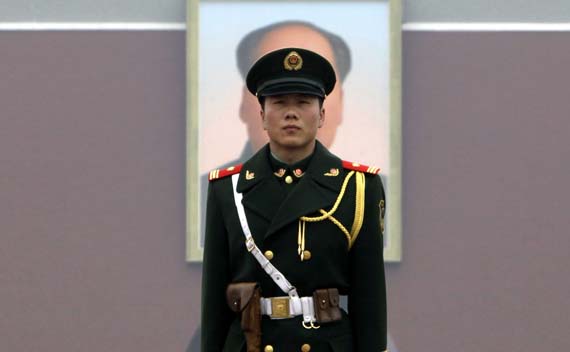China’s Parallel Universe
More on:

Bit by bit we are learning how China manages reality when reality doesn’t conform to Chinese interests: it constructs its own reality.
Some of this is simply smart politics. Chinese leaders don’t believe that the international press gives them a fair shake, so they invest $80 billion to create their own international media outreach with access to 130 news bureaus worldwide and a 24-hour English-language television station. Nothing wrong with this—everyone is free to decide what they do and don’t believe from any media source.
Some of it is simply embarrassing. When China didn’t like the fact that the 2010 Nobel Peace Prize was awarded to someone sitting in a Chinese jail, it first reverted to reflexive demagoguery, claiming the Peace Prize was part of a U.S.-orchestrated plot. Then Foreign Ministry spokeswoman Jiang Yu mocked the Nobel Committee as “clowns.” All the while, Beijing badgered, hectored and threatened other countries in an effort to prevent them from sending a representative to the Nobel ceremony. They managed to cobble together an odd assortment of ugly regimes and weak neighbors. What they have gained is anybody’s guess. Now Beijing has decided to award its own Confucius Peace Prize to former Taiwanese Vice-president Lien Chan the day before the Nobel Peace Prize. Without debating the merits of Lien as a choice, does Beijing really think that anyone takes this prize as a serious alternative to the Nobel Peace Prize? Maybe someday, but not now when it so clearly is a political gambit to draw attention away from Oslo.
But on occasion, China’s desire to live in an alternative reality is actually dangerous. Providing succor to Pyongyang and blaming the United States and South Korea for North Korea’s aggression undermines both Chinese credibility and, more importantly, stability in East Asia. For China, too, the costs of ignoring reality are growing. The United States, Japan, and South Korea are strengthening their security ties with less and less thought being given to Chinese interests and concerns. Moreover, the six-party talks have almost completely lost their ability to serve as a platform to showcase China’s potential as a regional leader.
Leaders often construct their own reality to manage domestic expectations or build consensus around a leadership priority. China, however, needs to distinguish between constructing an alternative Nobel Peace Prize to try to save face domestically from constructing an alternative world that protects North Korea but endangers the rest of the international community.
More on:
 Online Store
Online Store
